Plenary Personnel
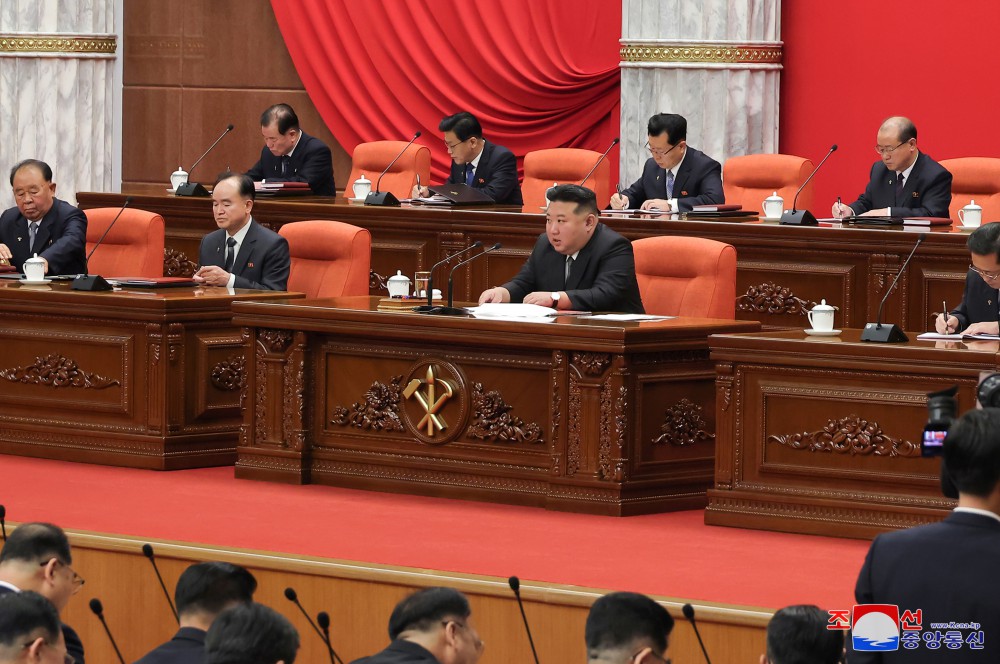
Kim Jong Un presides over the 11th plenary session of the 8th Central Committee of the Workers’ Party of Korea held 23-27 December 2024. Also on the platform in the the first tow (L-R) are Ri Pyng Chol, Jo Yong Won and Kim Tok Hun. In the back row (L-R) are O Su Yong, Jon Hyon Chol, Kim Jae Ryong and Ri Il Hwan (Photo: KCNA)

North Korea made a series of personnel changes during the Workers’ Party of Korea (WPK) 11th plenary session, held December 23-December 27. Although some analyses make far too much of the correlation between personnel and policy, the reshuffle of top officials in the party, army and government were done with an eye toward North Korea’s decisionmaking landscape in 2025 and Kim Jong Un’s (KJU; Kim Cho’ng-u’n) policy priorities. Personnel assignments from the Central Committee’s 11th plenary meeting continue broader trends wrought by KJU in North Korean political culture—senior military personnel migrating to civilian positions, and anti-corruption and discipline among various officials,
The Central Committee’s latest plenary meeting finds Pyongyang strategic culture in a bit of a holding pattern. North Korea’s external environment is in flux with political leadership chaos in South Korea and political transition in the US with the incoming second Trump Administration. Some of these personnel changes are linked to the DPRK-Russia Treaty on Comprehensive Strategic Partnership, but as with hereditary succession or nuclear weapons we sometimes involve ourselves in oversimplification when ascribing solitary motivations to North Korean decisions.
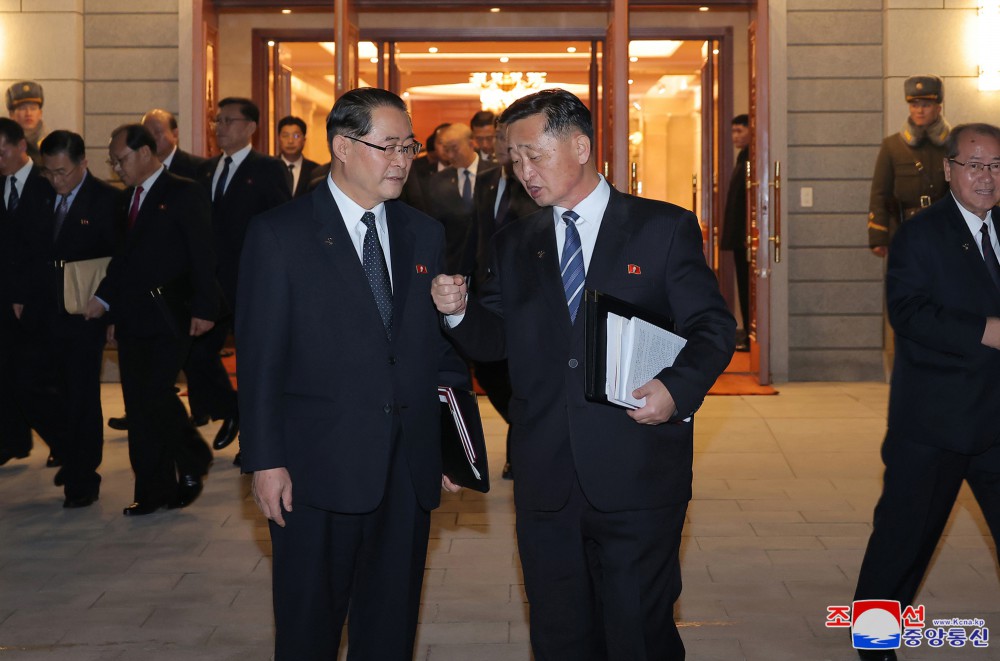
New DPRK Premier Pak Thae Song and new WPK Secretary for Economic Affairs Kim Tok Hun talk with one another as they exit the WPK Central Committee plenum. WPK Secretary Ri Il Hwan is on the right, appearing to the KCNA version of a photo bomb (Photo: KCNA).
Cabinet
The most notable personnel shuffle is Pak Thae Song’s (Pak T’ae-so’ng) appointment as DPRK Premier. Pak has been a close aide and adviser to KJU since his hereditary succession drive in 2009. The key difference between Pak Thae Song and the man he replaced, Kim Tok Hun (Kim Tok-hun), is that Pak has more experience in external affairs than Kim. Pak traveled to China in 2018 and went to Russia with KJU in 2023, in addition to completing exchange and education agreements with foreign institutions and organizations in his prior capacity as WPK Secretary for Science and Education.
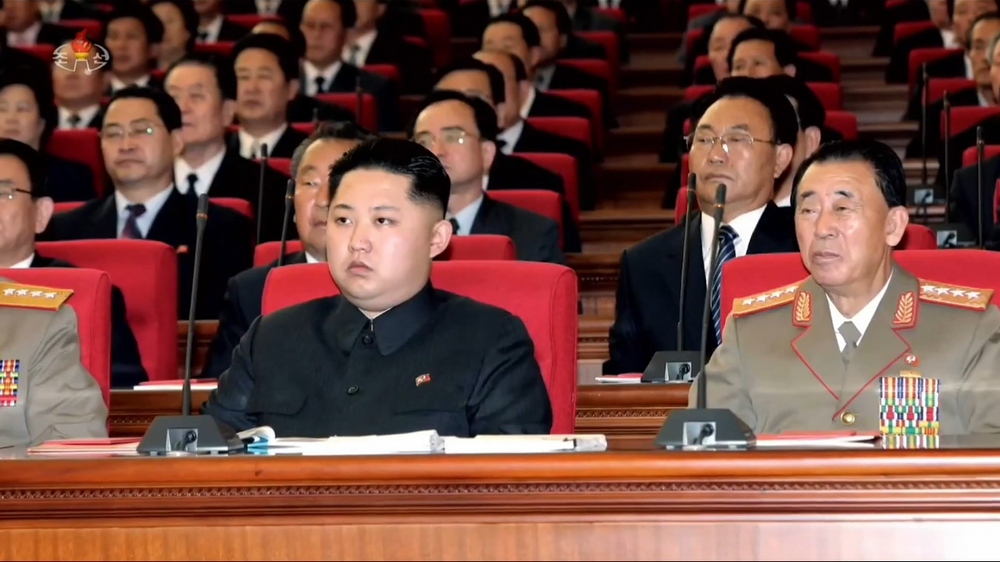
Pak Thae Song (background, left) attends the 3rd Party Conference on 28 September 2010 (Photo: KCTV).
The primary reason for Pak Thae Song’s appointment is to have in place an experienced head of government, trusted by the Suryo’ng, to coordinate and manage DPRK Cabinet Ministries’ interactions and with Russian counterparts. Part of the North’s treaty with Russia involves science and technology exchanges with civilian and/or domestic applications. A lot of subject matter experts, resources and delegations will be exchanged between Pyongyang and Moscow. The appointments of Kwon Song Hwan (Kwon So’ng-hwan) as Minister of Natural Resources Development and Kim Yong Sik (Kim Yo’ng-sik) as Minister of Commerce are probably tied to the treaty, as well.
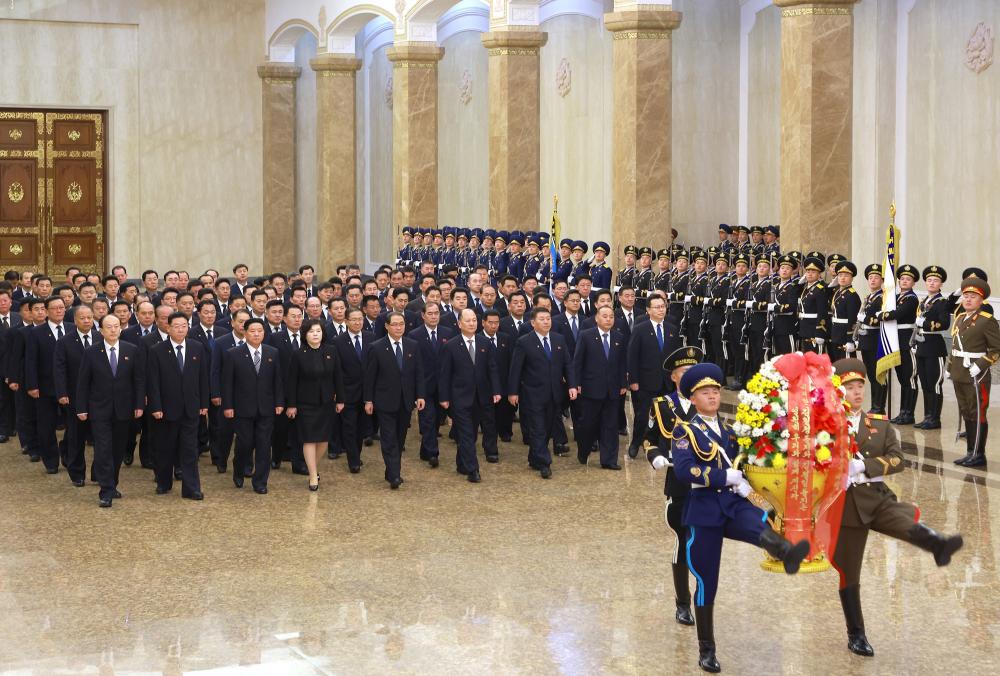
Newly-appointed DPRK Vice Premier Kim Jong Kwan (front row 3rd left) visits Ku’msusan with other members of the DPRK central leadership on 1January 2025 (Photo: KCNA)
In an unusual appointment, Kim Jong Gwan (Kim Cho’ng-kwan) was appointed as a Vice Premier. A former Minister and 1st Vice Minister of National Defense, Kim has been an effective figure in the construction and infrastructure projects of the Korean People’s Army (KPA). In addition to supervising the completion of numerous construction projects, Kim has also managed to mitigate the graft which has long plagued the KPA’s construction battalions. With his Vice Premiership, Kim also attained alternate status on the Political Bureau, placing him in a core decisionmaking forum. This indicates his Cabinet appointment comes with a mandate. Like Pak Thae Song, Kim Jong Gwan traveled to Russia with KJU in 2023. However, Kim’s appointment probably has less to do with DPRK-Russia relations, especially the military component therein, than with optimizing and fusing the contributions of KPA construction units to the 20 x 10 Policy and other domestic economic goals. Kim Jong Gwan’s direct appointment to the Cabinet is extraordinary and might be an outlying trend for other KPA-based technocrats.
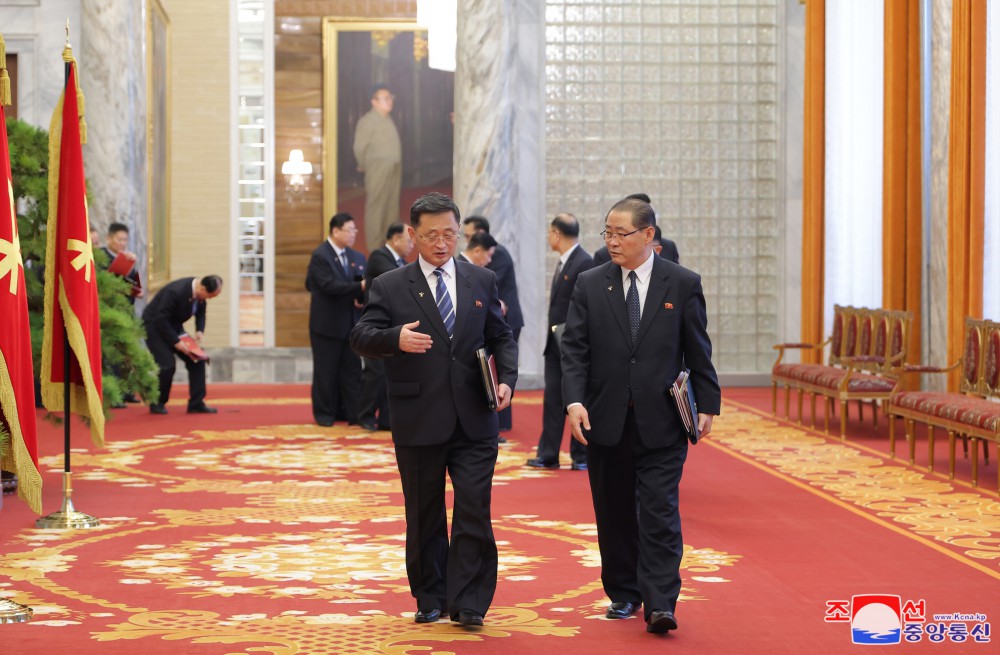 Central Party
Central Party
Three appointments were made to the Central Committee’s leadership in the Secretariat and Central Committee’s 20-odd functional departments.
Kim Tok Hun migrated from DPRK Premier to WPK Secretary for Economic Affairs and Director of the WPK Economic Affairs Department. The ROK Ministry of Unification (MOU) has identified Kim Tok Hun’s appointment as “rotational” whereby Pak Thae Song was a WPK Secretary and appointed DPRK Premier and Kim was Premier and appointed WPK Secretary. There is certainly something lurking behind the Kim-Pak handoff. KCTV coverage of the plenary session showed KJU congratulating Kim and Pak on the platform after the Central Committee approved their appointments. Footage also showed them cordially conferring with one another as they walked to one of the plenum’s sideline meetings. Aside from Kim Tok Hun being appointed to a “straight economic” portfolio, in MOU’s assessment, more commensurate to his skillset and career, there is a possibility that Kim asked to be transferred to his new position.
WPK Science and Education Department (SED) Director Choe Tong Myong (Ch’oe Tong-myong) was appointed to the WPK Secretariat’s science and education slot, replacing Pak Thae Song. In contrast to Pak, Choe holds a bifurcated post in the Central Committee apparatus, meaning he serves concurrently as a central party secretary and department director. This combines the role of a top advisor involved in strategic decisionmaking (Secretariat) with the role of a day-to-day administrative manager supervising the minutiae of policymaking (Central Committee Department. One additional factor in Choe’s elevation to the Secretariat is that as a central party secretary has a protocol pretext to interact with civilian Russian education and science delegations, in addition to being able to lead DPRK delegations on foreign visits.
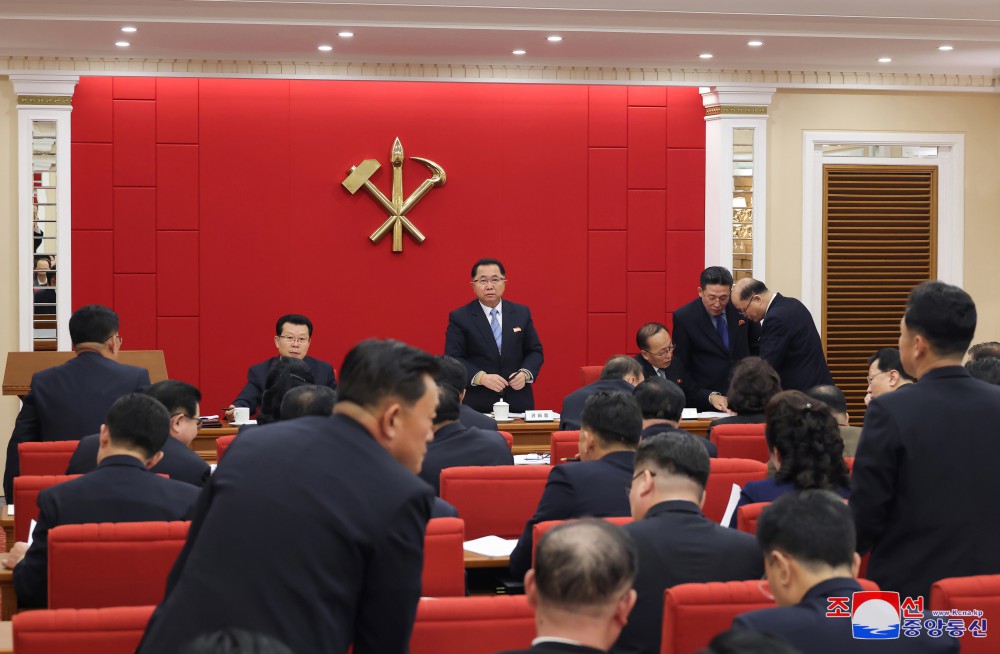
Central Inpsection Commission Chairman and WPK Secretary and Cadres’ Affairs Department Director RI Hi Yong (standing) and WPK Discipline Investigations Department Director Kim Jae Ryong (seated, left) at a sideline conference during the Central Committee plenary meeting (Photo: KCNA).
Ri Hi Yong (Ri Hi-yo’ng) was appointed WPK Secretary for Cadres Affairs and Director of the WPK Cadres’ Affairs Department. He was also elected Chairman of the Central Inspection Commission (CIC). During the last four years, Ri has served as WPK Organization Guidance Department (OGD) lead Senior Deputy Director, although during the spring of 2024 Ri was subjected to revolutionization, either due to some unknown peccadillo or to prepare him for a new job appointment. In July 2024, he became the interim chief party secretary of North P’yo’ngan Province. This personnel handoff, along with Col. Gen. Pang Tu Sop (Pang Tu-sop) to Minister of Public Security, stems from a lack of responsiveness to flood damage in the province.
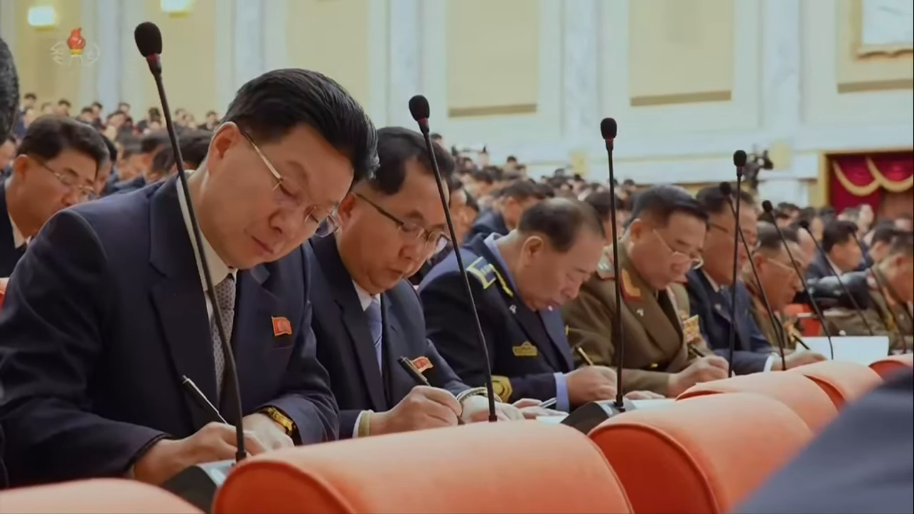
Ri Hi Yong (2nd left) taking notes during the Central Committee plenum from the cheap seats (Photo: KCNA).
Ri was replaced in North P’yo’ngan by Kim Chol Sam (Kim Ch’o’l-sam). Kim is the outgoing WPK Discipline Investigation Department (DID) Director and one of two CIC Vice Chairs. The other CIC Vice Chairman with whom Kim concurrently served is Ri Hi Yong. With his appointment to the country’s northwest, Kim Chol Sam has held two positions previously occupied by Ri Hi Yong, with the other being a chief party secretary in North Hamgyo’ng.
Ri Hi Yong replaces Kim Jae Ryong (Kim Chae-ryo’ng) in the dual-hatted CAD/CIC position. Kim Jae Ryong has beta tested this dual position whereby the regime’s leading personnel affairs official at CAD concurrently leads KJU’s signature anti-corruption organization at CIC. Kim Jae Ryong was appointed as DID Director and CIC Vice Chairman replacing Kim Chol Sam. This appears to be a demotion, but it is most likely a lateral appointment. Kim Jae Ryong has held two top positions in the regime—DPRK Premier and OGD Director. He also chaired the preparatory committee for the 8th Party Congress. These are all indicators of a trusted top aide and adviser to KJU. He is the fourth DID Director since the department was stood up at the 8th Party Congress in 2021. This raises the question of whether the post of DID Director is intended to be a short-term assignment or if prior directors experienced difficulties investigating corruption among party cadres and other regime officials.
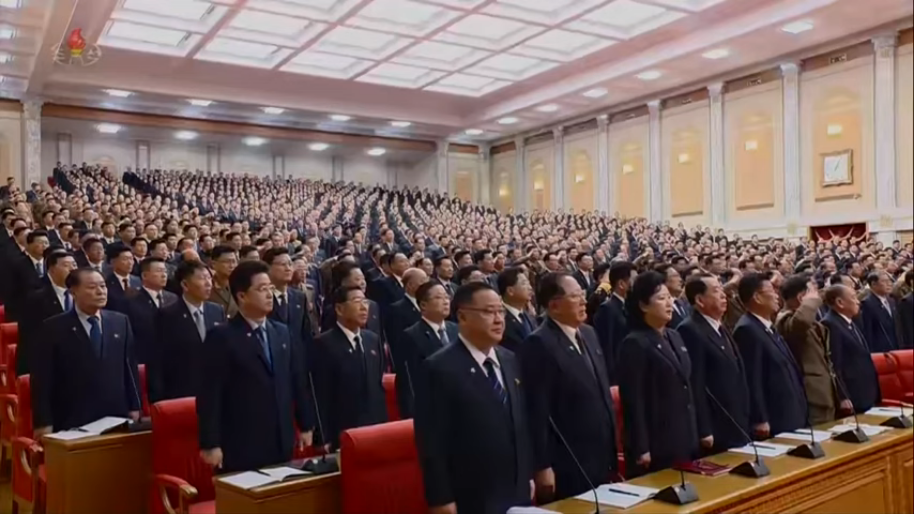
WPK Munitions Industry Department (MID) Senior Deputy Director Kim Jong Sik (front row, left) and MID Senior Deputy Director Hong Sung Mu (front row, 2nd left) at the Central Committee plenum. Also in attendance is former MID Director Yu Jin (3rd row, left) (Photo: KCTV).
Missile Man on CMC
WPK Munitions Industry Department Senior Deputy Director Kim Jong Sik was appointed to a new position on the WPK Central Military Commission (CMC). Kim is one of KJU’s top advisers on ballistic missiles and WMDs. While Kim has attended CMC meetings, his new CMC status gives him a formal advisory and decisionmaking role in defense system development and acquisition.
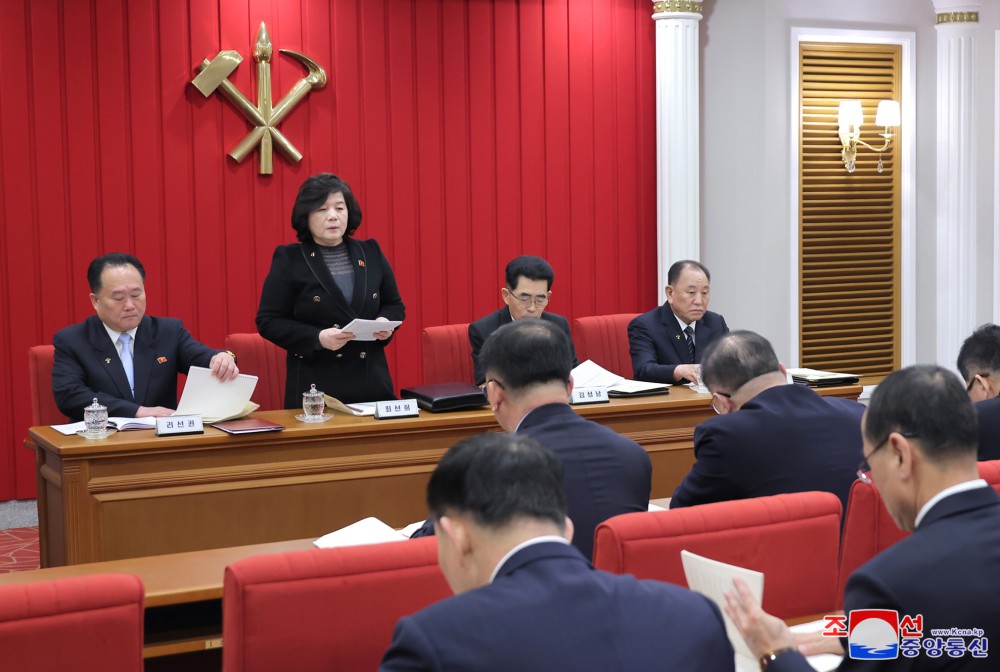
Sideline conference for officials and cadres involved in external affairs during the WPK Central Committee plenum. At the head table (L-R) are: Central Committee Office #10 Chief (f/k/a United Front Department) Ri Son Gwon, Foreign Minister Choe Son Hui, WPK International Affairs Department Director Kim Song Nam and senior advisor Kim Yong Chol (Photo: KCNA).
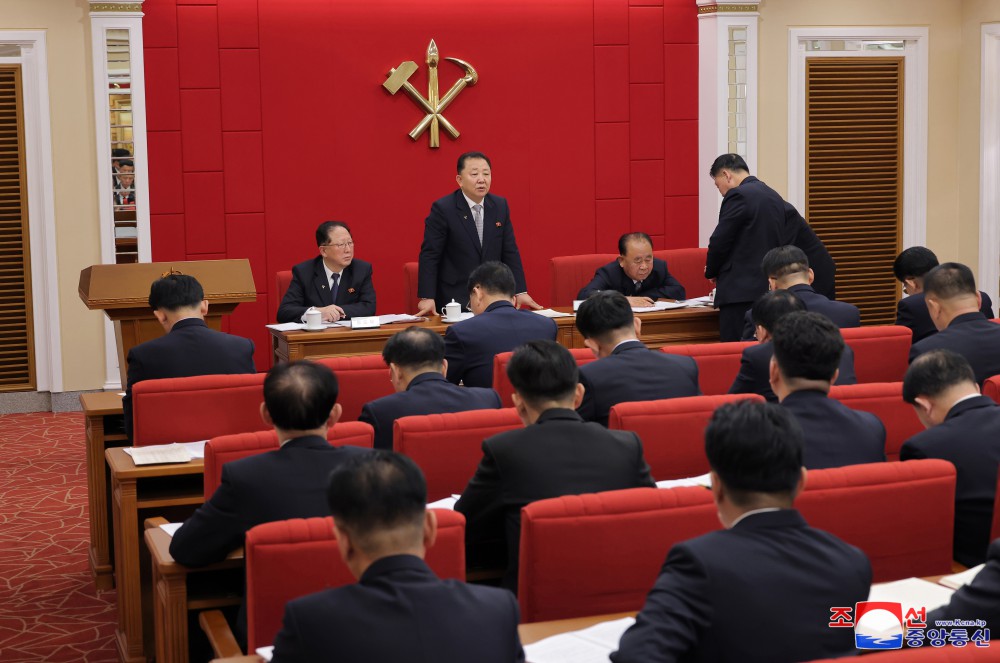
Sectoral sideline conference for officials and cadres in the defense industry. At the head table are: MID Senior Deputy Director Hong Sung Mu, WPK Secretary and MID Director Jo Chun Ryong and CMC Vice Chairman MAR Ri Pyong Chol (Photo: KCNA).
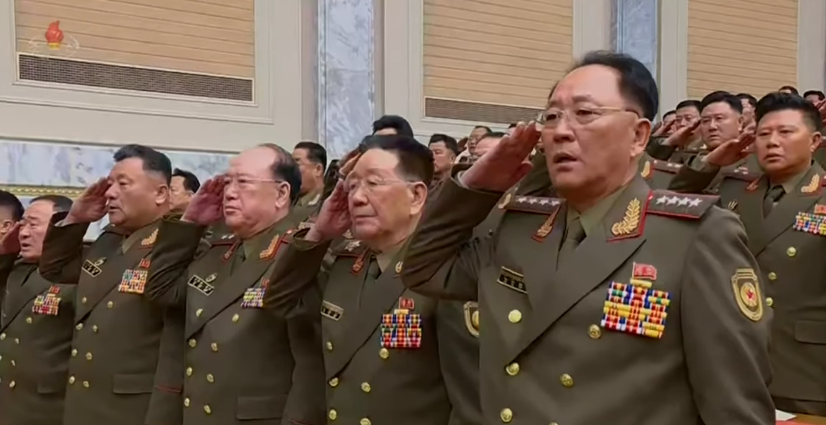
Minister of National Defense GEN No Kwang Chol (right) and Senior KPA and MND Adviser VMAR Hwang Pyong So during the opening of the Central Committee plenum (Photo: KCTV)
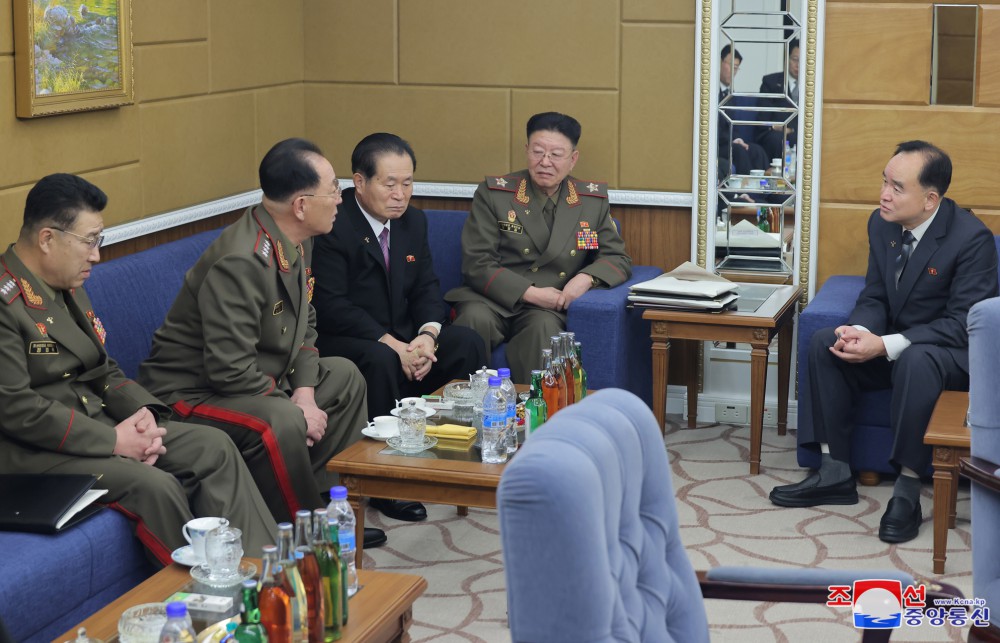
Top officials of the KPA high command confer with senior party officials. From left to right are: KPA General Political Bureau Director GEN Jong Kyong Thaek, Minister of National Defense GEN No Kwang Chol, WPK Secretary and Political Guidance of the Military Department Director MAR Pak Jong Chon, Chief of the KPA General Staff VMAR Ri Yong Gil and WPK Secretary and Organization Guidance Department Director Jo Yong Won (Photo: KCNA).
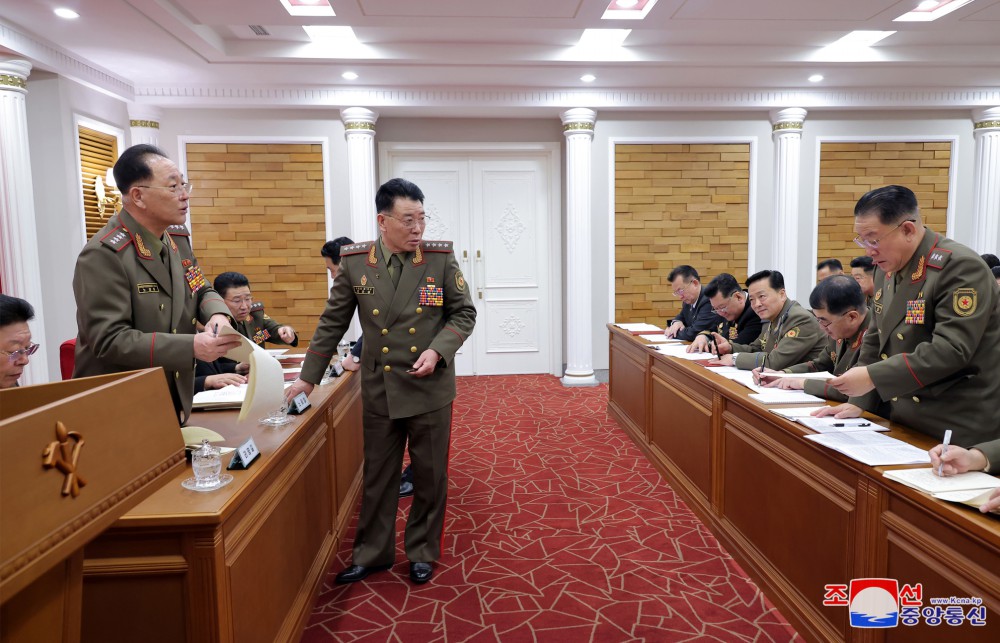
Current Minister of National Defense GEN No Kwang Chol and immediate past Minister of National Defense GEN Kang Sun Nam at the sideline sectoral conference (Photo: KCNA).
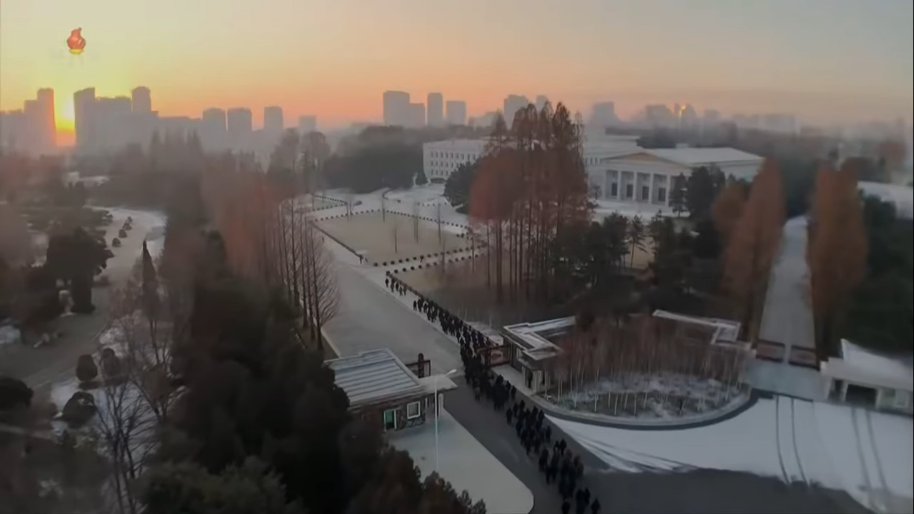
View of the premises of the WPK Central Committee Office Building (Central Party Complex #1), the venue of the Central Committee plenum (Photo: KCTV).